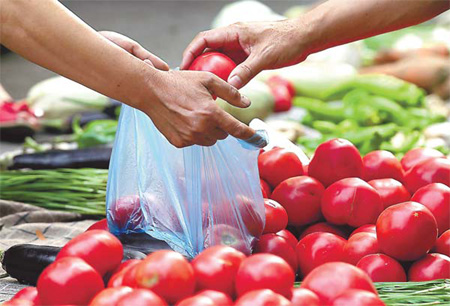InfoGraphic
Plastic bag ban yet to be enforced
By He Na (China Daily)
Updated: 2010-06-29 15:45
 |
Large Medium Small |
|
 |
|
Free and ultra-thin plastic bags have returned to China's cities, despite the government issuing a ban two years ago. Environmentalists say they pose a real pollution danger. [China Daily] |
China is not the first country to restrict the use of plastic bags, with several developed countries already rolling out various policies.
The government in the Republic of Ireland introduced an environmental tax on plastic bags, which is used exclusively for recycling projects. Although successful, the policy would not necessarily suit China, according to Yang Weihe, a program officer with the EnviroFriends Institute.
"Ireland's efforts are worth applauding but (such a policy) only suits small countries with populations fewer than China," he said. "We can learn from the experiences of other countries but we can't copy everything they do as conditions here are different."
Ridding China of plastic bags will also be easier said than done without a suitable alternative, say experts.
Although meat, fish and some vegetables are packaged in supermarkets and can be transported in one large, reusable bag, goods at wet markets are sold loose.
"Compared with supermarkets, I prefer the farmers' market for vegetables because they are much fresher and cheaper there," said Yang Rui, who runs an ice cream parlor in Beijing. "But if the government can't work out an alternative to plastic bags, the ban only spells trouble for me."
Waste plastics account for 3 to 5 percent of the annual household trash in landfill sites across China. The majority of the waste is plastic bags thicker than 0.025 mm.
Plastics do not degrade easily and can lead to long-term and latent ecological environment problems, causing soil hardening and damaged crops, and can even reduce crop outputs.
"The aim of the ban on plastic bags is to reduce pollution, so the fundamental solution to the problem still lies with raising the public's environmental protection awareness," said Dong, "It's a long-term goal.
"Since we can't find a more environmentally friendly and convenient substitute for plastic bags, calling for people to minimize use and promoting reuse is more realistic," he said.
Despite the fact many manufacturers claim their plastic bags are biodegradable, even saying so on the product, Dong explained that his research shows that more than 90 percent of bags produced are not.



